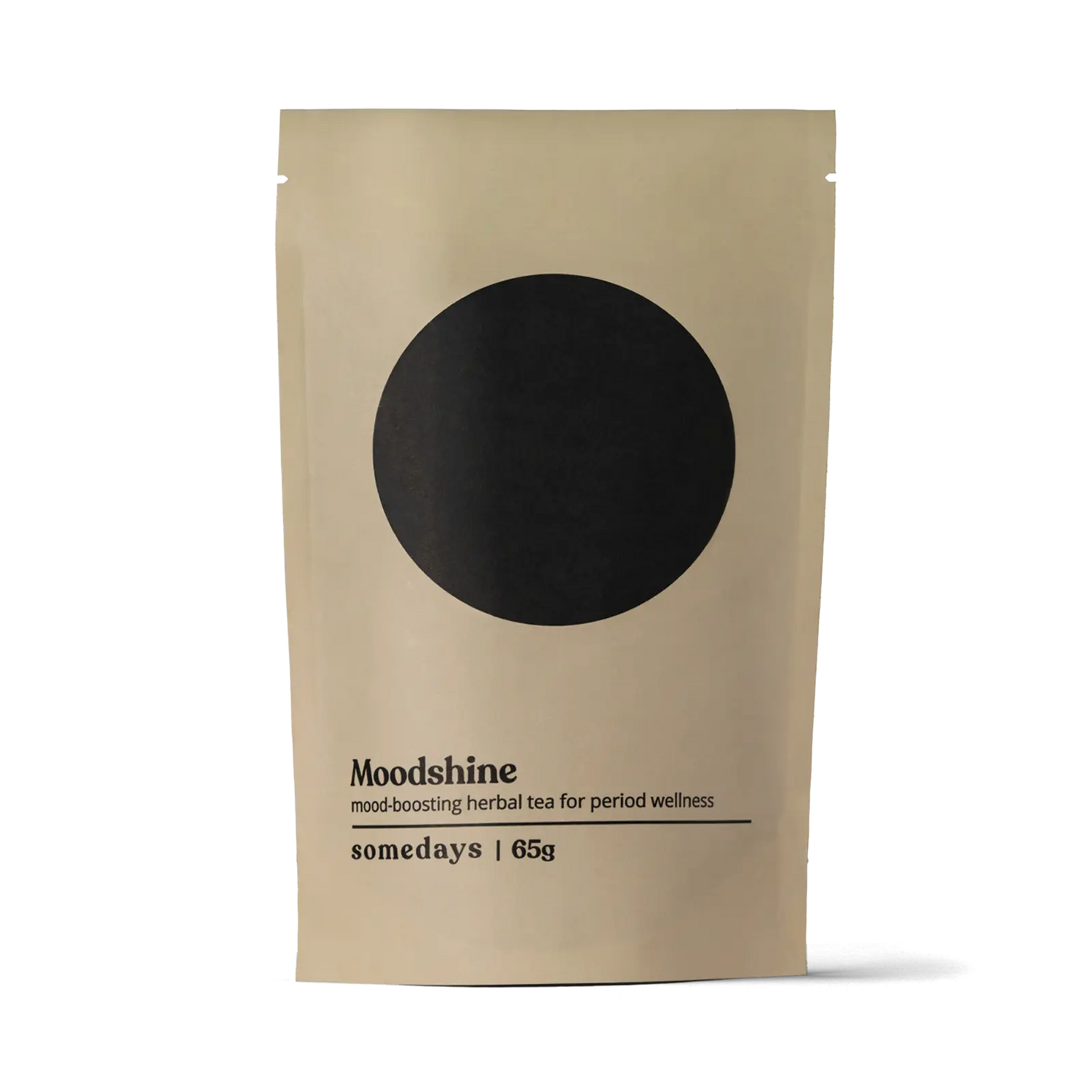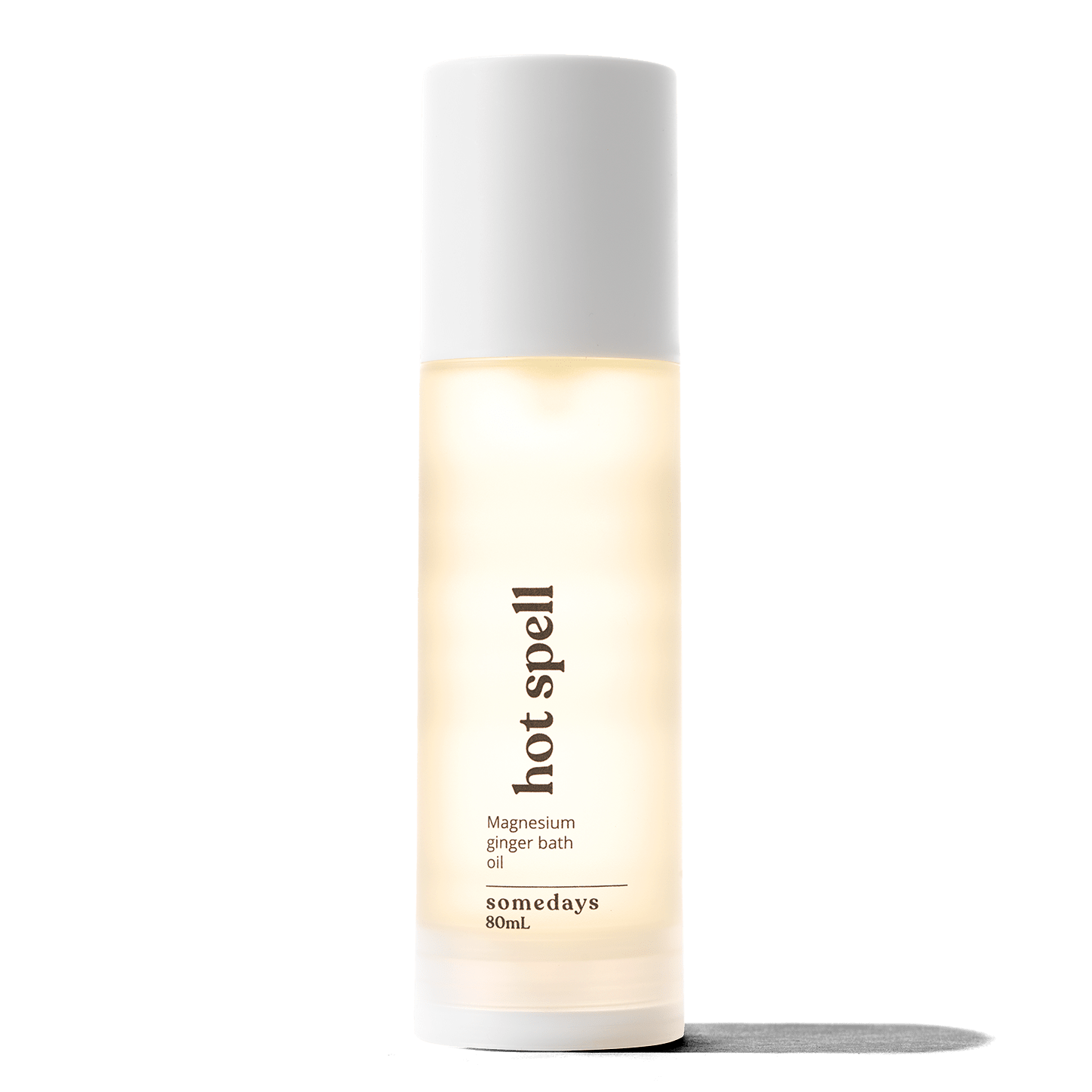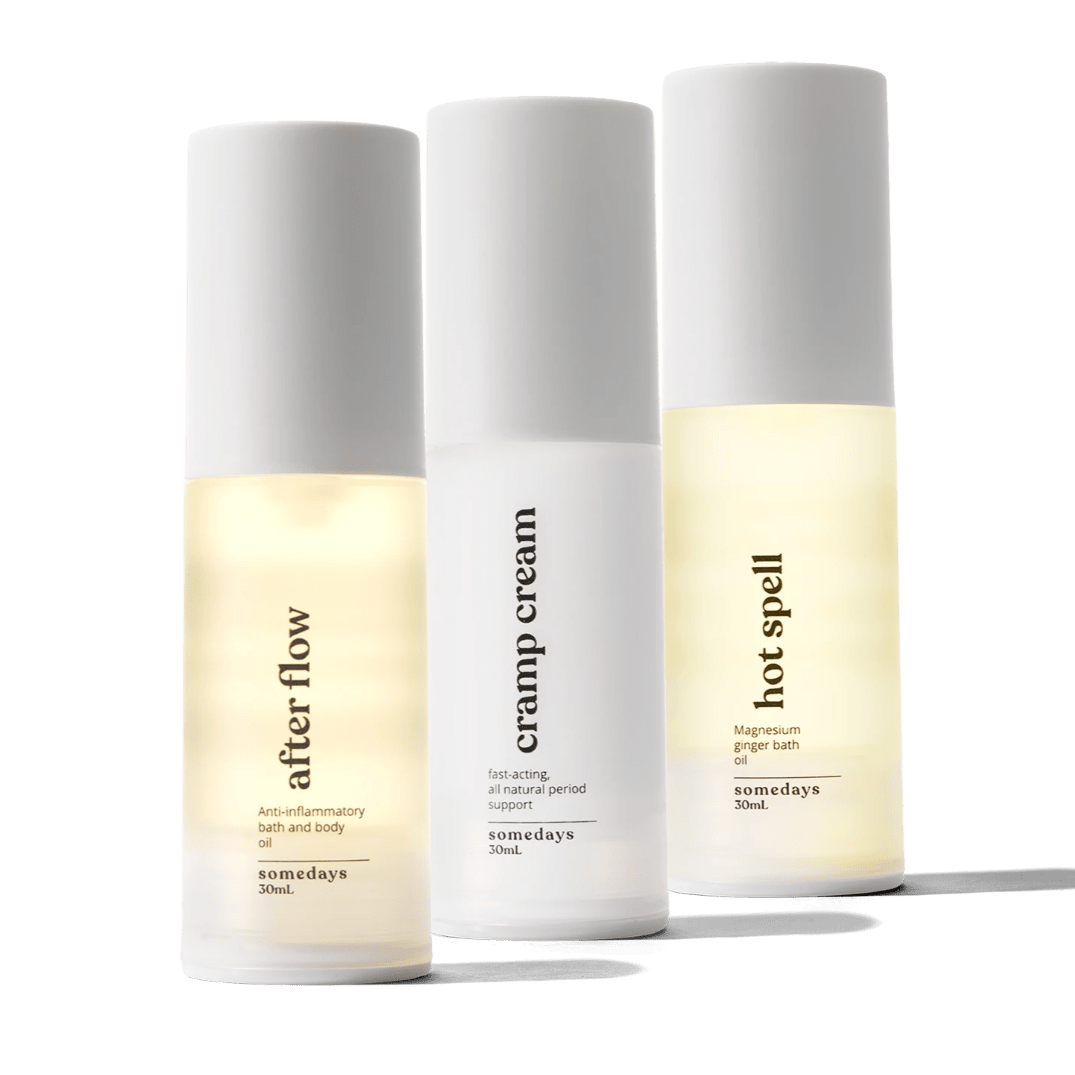Understanding PMS: Symptoms, Causes, and Natural Treatment Options

PMS, or premenstrual syndrome, affects 3 out of 4 menstruators, yet it’s often misunderstood and stigmatized. Have you ever been asked, "Are you PMSing?" or told “Maybe it’s just PMS” when you’re feeling emotional? Because, same. These are dismissive and all too common remarks that belittle a legitimate, and frequent, health condition. For years, I struggled with the emotional rollercoaster and physical discomforts of PMS, often feeling misunderstood and disregarded. This is why discussions around the topic of PMS - its symptoms, causes, and how to manage it - are more important than ever.
What is PMS?
PMS refers to a group of symptoms that occur in menstruators one to two weeks before their period. These symptoms can vary widely but often include mood swings, bloating, headaches, fatigue, irritability, and tender breasts. While some experience mild symptoms, others find them severe enough to interfere with daily activities.
PMS Symptoms
PMS includes a wide range of symptoms that vary from person to person. Common symptoms include:
- Emotional Changes: Mood swings, irritability, anxiety, and depression.
- Physical Discomfort: Bloating, breast tenderness, headaches, and joint or muscle pain.
- Behavioral Changes: Sleep disturbances, changes in appetite, and difficulty concentrating.
These symptoms typically occur in the luteal phase of the menstrual cycle, which is the two weeks leading up to menstruation.
PMS Causes
The exact causes of PMS are not fully understood, but several factors are believed to contribute:
- Hormonal Fluctuations: Changes in estrogen and progesterone levels during the menstrual cycle play a significant role in triggering PMS symptoms.
- Serotonin Levels: Serotonin, a neurotransmitter that regulates mood, can also be affected by hormonal changes. Low levels of serotonin are linked to feelings of sadness and irritability, which are common in PMS.
- Underlying Health Conditions: Conditions such as endometriosis, adenomyosis and PCOS can exacerbate PMS symptoms.
- Lifestyle Factors: Stress, food choices and inadequate sleep can all worsen PMS symptoms.
PMS Serotonin Connection
Estrogen, which comprises three major hormones—estrone, estradiol, and estriol—plays a crucial role in mood regulation. Among these, estradiol is the most potent and significantly impacts emotional well-being. During the luteal phase of the menstrual cycle, estrogen levels fluctuate, leading to mood changes often associated with PMS.
Clinical trials have demonstrated that serotonin precursors, essential for mood regulation, increase significantly between days 7 to 11 and 17 to 19 of the menstrual cycle. This evidence suggests a close association between PMS and mood disorders, highlighting the interplay between estrogen and serotonin regulation.
According to studies:
- Approximately 90% of menstruators experience several premenstrual symptoms varying from mild to severe during their reproductive years.
- Severe PMS, known as Premenstrual Dysphoric Disorder (PMDD), affects about 3-8% of women and requires medical intervention.
Natural PMS Treatments
While there is no one-size-fits-all cure for PMS, many natural treatment options can help alleviate symptoms:
Nutrition:- Reduce Caffeine and Sugar: Cutting back on caffeine and sugar can help stabilize mood swings and reduce bloating.
- Increase Magnesium and Calcium Intake: Foods rich in magnesium (like leafy greens and nuts) and calcium (like dairy products or tofu and broccoli if you’re dairy-free) can help reduce PMS symptoms.
- Regular physical activity can help alleviate PMS symptoms by releasing endorphins, which are natural mood lifters.
- Practices such as yoga, meditation, and deep-breathing exercises can reduce stress and improve emotional well-being.
- Certain herbal teas, like chamomile or raspberry leaf, can help soothe menstrual discomfort. Our Raspberry Relief Tea is formulated to help relieve pain and discomfort during PMS.
- Supplements like Omega-3, vitamin B6, and magnesium can be beneficial. However, it's always best to consult with a healthcare provider before starting any new supplement regimen.
- Products like Cramp Cream, Belly Jelly or Hot Spell - which are infused with natural pain-relieving ingredients like arnica, magnesium and castor oil - can provide targeted relief for cramps and muscle pain.
Understanding PMS and its symptoms, causes, and natural treatment options is essential for better managing this condition. By embracing natural remedies and breaking down stigmas, we can improve the quality of life for those who experience PMS.
Join our Betterdays community - a weekly newsletter where we break down the latest (TLDR) news, research and breakthroughs related to your reproductive health—with a splash of humour to get you through the tough days.
Previous Article All Articles Next Article
All Articles


